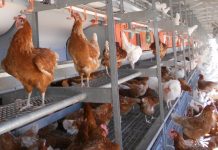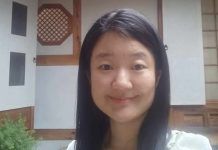On July 18, more than 100 people went to Oasis at Grossmont to listen to the wisdom of Carol Marak, a self-proclaimed expert on aging alone. Marak, the founder of Facebook group Elder Orphans, lectured on how to prepare for aging all on one’s own. Marak talked about her own experience in caregiving for her parents. “After my parents had both passed away, I realized I had no plan for myself for aging alone. I am a divorcee with no children. I have siblings, but they are involved with their own lives and I cannot expect them to drop everything to care for me,” Marak said. “So I realized I had to put a plan together.” Almost immediately, she created the Elder Orphans Facebook group, calling it such after she had read a geriatric study from the 1980s, renewed in 2015. The study called people who were without spouses and children elder orphans because they were at risk of being socially isolated and having nobody to help. Marak identified the top is-sues that older adults aging alone face as health, housing location and transportation. One’s housing situation is important in part because residential location will determine the availability of social outlets, which can be dependent upon transportation. Marak made the decision of moving from San Diego to a high-rise in downtown Dallas, Texas where she is close to all public transportation. “I also get to walk nearly five to six miles, which helps in my health goals,” she said. One of the first things that Marak did in her plan to age with dignity and independence was get a health assessment from her doctor. He told her that she needed to lower her cholesterol. She cut out most red meat and added more fresh produce to her diet. And living in a high-rise? She loves it. “I used to live in a two-story home in the suburbs, very car-dependent with no access to immediate friendships or social connections,” she said. “People ask me how I make friends in a high-rise. It starts with seeing your neighbors and saying, ‘Hi, how are you today?’” It took Marak seven years and several trips back and forth to Dallas from San Diego to develop and implement a personal aging alone plan. One of the first things she determined was that she did not want to drive. “I always hate driving in traffic, and I did not want the cost of maintaining a car. And I have the added benefit of walking every day to errands and to public transportation,” she said. Simona Valanciute, San Di-ego Oasis President and CEO, thanked Marak for her coming all the way from Dallas to come and talk at Oasis. “Kudos to you for making such a brave decision to change your life—all by yourself,” she said. “What gave you the courage to do such a thing?” Marak explained that it all took place, one step at a time over the course of seven years. “Don’t get bogged down by worries of all the issues. Concentrate on one thing. Start with your own health issues. With your good health, you can do anything,” she said. Somebody from the audience asked how people could find more social opportunities for elderly people in San Diego. “As a matter of fact,” Valanciute said, “Oasis has begun to include more social opportunities, such as a Karaoke Show on Aug. 2.” In a later interview with Valanciute, she reiterated that social isolation is the key issue in the older adult population today. “The mission of Oasis has been focused on solving social isolation for the last 40 years. In fact, our organization was the true pioneer in the healthy aging field before it became a known field with the specific Social Determinants of Health,” Valanciute said. Oasis has created senior center to help the new senior, who is the most misunderstood population, experts agree. Valanciute explained that while today’s older adult is still facing isolation and loneliness across all socioeconomic factors, today’s older adult is quick to reject the “senior citizen” label and all the implied needs and wants the term brings. Valanciute explained that while today’s older adult is still facing isolation and loneliness across all socioeconomic factors, today’s older adult is quick to reject the “senior citizen” label and all the implied needs and wants the term brings. “Oasis does not look and feel like a senior center, but it provides all the things a newly re-imagined senior center would provide,” she said. Other events that San Diego Oasis has planned include the Taste of Oasis on August 28 from 10 a.m. to noon, when the Oasis staff will serve coffee while showcasing the courses for the fall trimester beginning in September. Additionally, there will be the annual “Get Connected” Technology Fair on October 15. The fair centers around learning the newest technology for staying in touch, learning new things, and understanding health-related and safety technology to improve quality of life.













